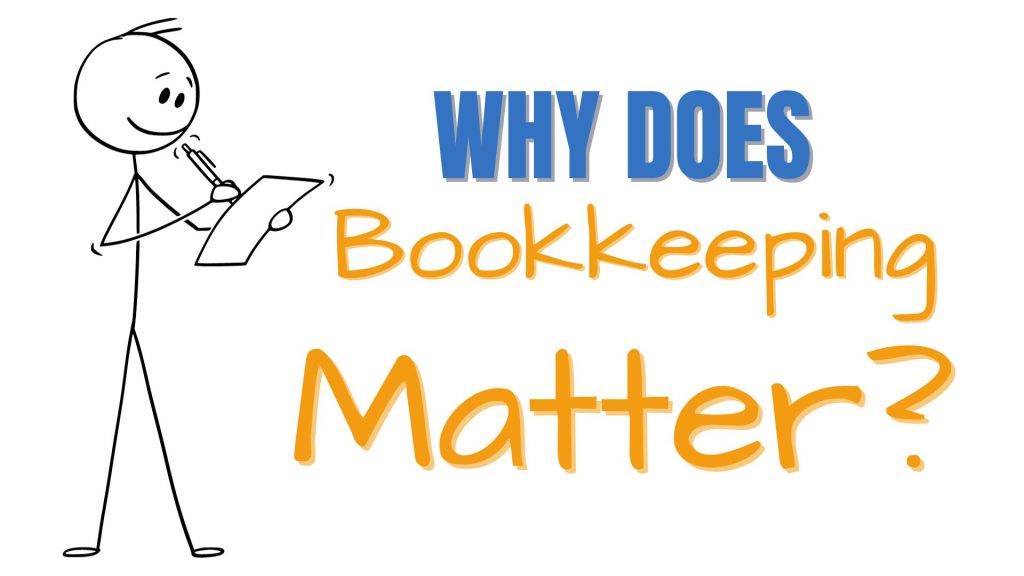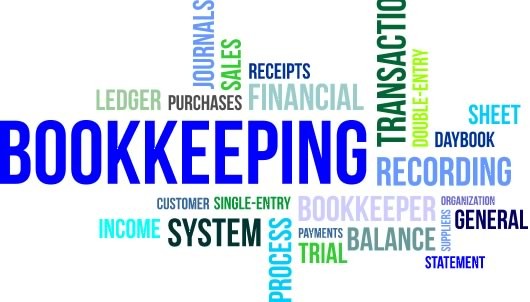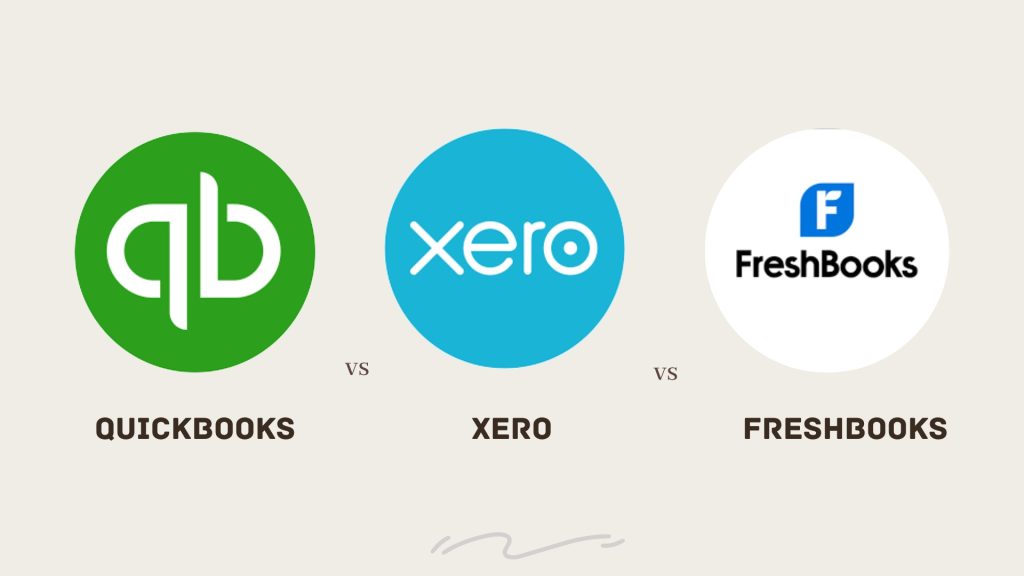Bookkeeping is crucial for your business because it maintains accurate financial health, manages cash flow, ensures tax compliance, and supports smarter decision-making. Without proper bookkeeping, businesses risk financial instability, penalties, and missed opportunities for growth.
What Is Bookkeeping and Why Does It Matter?

Bookkeeping is the process of recording and organizing all financial transactions made by a business, forming the foundation of a company’s financial records.
While bookkeeping tracks daily financial activities, accounting interprets and analyses that data to guide business decisions.
Bookkeeping matters because it ensures that financial records are accurate, current, and complete. Without consistent record keeping of financial transactions, businesses operate blindly, unable to measure growth or predict future financial needs.
- Financial Records: Accurate, updated logs of a business’s activities.
- Record Keeping: The daily discipline of capturing transactions.
- Financial Transactions: Every movement of money within the business.
How Bookkeeping Supports Business Growth

The role of bookkeeping in business success is often underestimated, but it is a critical driver of sustainable growth.
Accurate bookkeeping:
- Enables Cash Flow Management: Businesses can monitor inflows and outflows effectively.
- Informs Financial Decision-Making: Leaders make smarter choices based on real-time data.
- Helps Manage Business Expenses and Revenue: Keeping a balance between spending and earning is easier with precise records.
Through cash flow analysis, financial decision making, expense tracking, and revenue management, businesses can allocate resources wisely and plan confidently for expansion.
10 Critical Benefits of Good Bookkeeping

Understanding the benefits of bookkeeping for business clarifies why no business should neglect it.
- Organised Financial Reporting
Clear reports allow for better tracking and understanding of financial health. - Easier Tax Filing
Well-kept records streamline the tax preparation process and minimize errors. - Better Budgeting
Historical data enables more accurate financial forecasts. - Prepares Business for Audits
Audit readiness reduces panic and ensures compliance with regulations. - Improves Financial Transparency
Helps stakeholders trust and verify the business’s health. - Helps Secure Business Loans or Investors
A strong financial history attracts banks and investors. - Early Detection of Financial Problems
Spotting inconsistencies early helps address them before they escalate. - Ensures Regulatory Compliance
Meeting financial regulations avoids costly penalties. - Saves Time and Reduces Stress
Good systems mean fewer last-minute scrambles. - Boosts Business Credibility and Trust
Clear and organized financials improve a business’s reputation.
Terms involved:
Tax preparation, audit readiness, business loan application, profit and loss statements, business financial reports.
Why Small Businesses Especially Need Bookkeeping

The importance of bookkeeping for small businesses and startups cannot be overstated.
Startups are especially vulnerable without proper bookkeeping because:
- Cash reserves are often limited.
- Small mistakes can lead to outsized impacts.
Common small business bookkeeping mistakes include:
- Not separating personal and business finances.
- Delaying recording transactions.
- Poor expense categorisation.
Effective small business accounting and startup financial management underpin any business growth strategy. Good bookkeeping helps businesses transition from fragile beginnings to sustainable growth — but at what point do you need to hire a bookkeeper to stay on track?
Common Bookkeeping Mistakes That Can Hurt Your Business

Every business should be aware of the common bookkeeping mistakes that could cause serious damage:
- Not Recording Daily Transactions
Leads to inaccuracies and missed revenue or expenses. - Mixing Business and Personal Accounts
Confuses records, complicates taxes, and risks legal trouble. - Ignoring Account Reconciliation
Unchecked discrepancies may hide fraud or errors. - Missing Backup of Financial Data
Data loss can cripple financial tracking. - Poor Expense Categorization
Inaccurate reporting and misinformed decisions stem from badly categorized spending.
Daily financial tracking, bank reconciliation, and business expense categorization are non-negotiable best practices.
Choosing the Right Bookkeeping Method

When deciding how to start bookkeeping for your business, you must understand your options.
- Manual Bookkeeping:
Involves spreadsheets or handwritten ledgers. Good for very small businesses but prone to error. - Using Accounting Software:
Platforms like QuickBooks and Xero offer automation, reducing human error.
Knowing when to shift from DIY bookkeeping to hiring a professional bookkeeper is vital.
Generally, once transactions increase or taxes become complex, expert help saves time and money.
Advantages of cloud-based accounting software include 24/7 access, real-time updates, and automatic backups.
Recommended Bookkeeping Tools for Modern Businesses

Exploring the best bookkeeping software options can give your business an edge:
- QuickBooks:
User-friendly with powerful integrations. Ideal for small to medium businesses. - Xero:
Known for beautiful UX and scalability. Strong for growing businesses. - FreshBooks:
Perfect for freelancers and service-based businesses.
Pros and Cons:
- QuickBooks: Popular but slightly expensive.
- Xero: Great for collaboration but learning curve for beginners.
- FreshBooks: Affordable but limited for complex accounting.
The future lies in bookkeeping automation, cloud-based financial management, and online bookkeeping solutions.
How to Learn Bookkeeping for Your Business

If you’re wondering how to learn bookkeeping online, Careers Collectiv offers a straightforward, accessible path.
Options include:
- Online bookkeeping courses
Flexible programs designed for busy entrepreneurs. - DIY vs Professional Learning
Some business owners benefit from DIY courses, while others prefer structured mentorship.
Mastering bookkeeping builds financial literacy for business owners and empowers better decisions. Careers Collectiv’s online bookkeeping course is tailored to small business owners who want confidence in managing their finances without confusion, including understanding what records should you keep for your bookkeeping purposes to stay organized and compliant.
Why Prioritizing Bookkeeping Will Future-Proof Your Business

The importance of bookkeeping for business success cannot be overstated, especially when thinking long-term.
- Bookkeeping as a Long-Term Strategy
Consistent financial tracking supports business scalability and sustainable business practices. - Impact on Future Growth
Strong financial foundations allow businesses to weather downturns, pivot when necessary, and attract investment.
The future points toward automation, real-time reporting, and smarter financial planning. Those who prioritise bookkeeping now will be the businesses that survive — and thrive — tomorrow.
At Careers Collectiv, we believe in empowering businesses not just to succeed today, but to plan smartly for tomorrow.